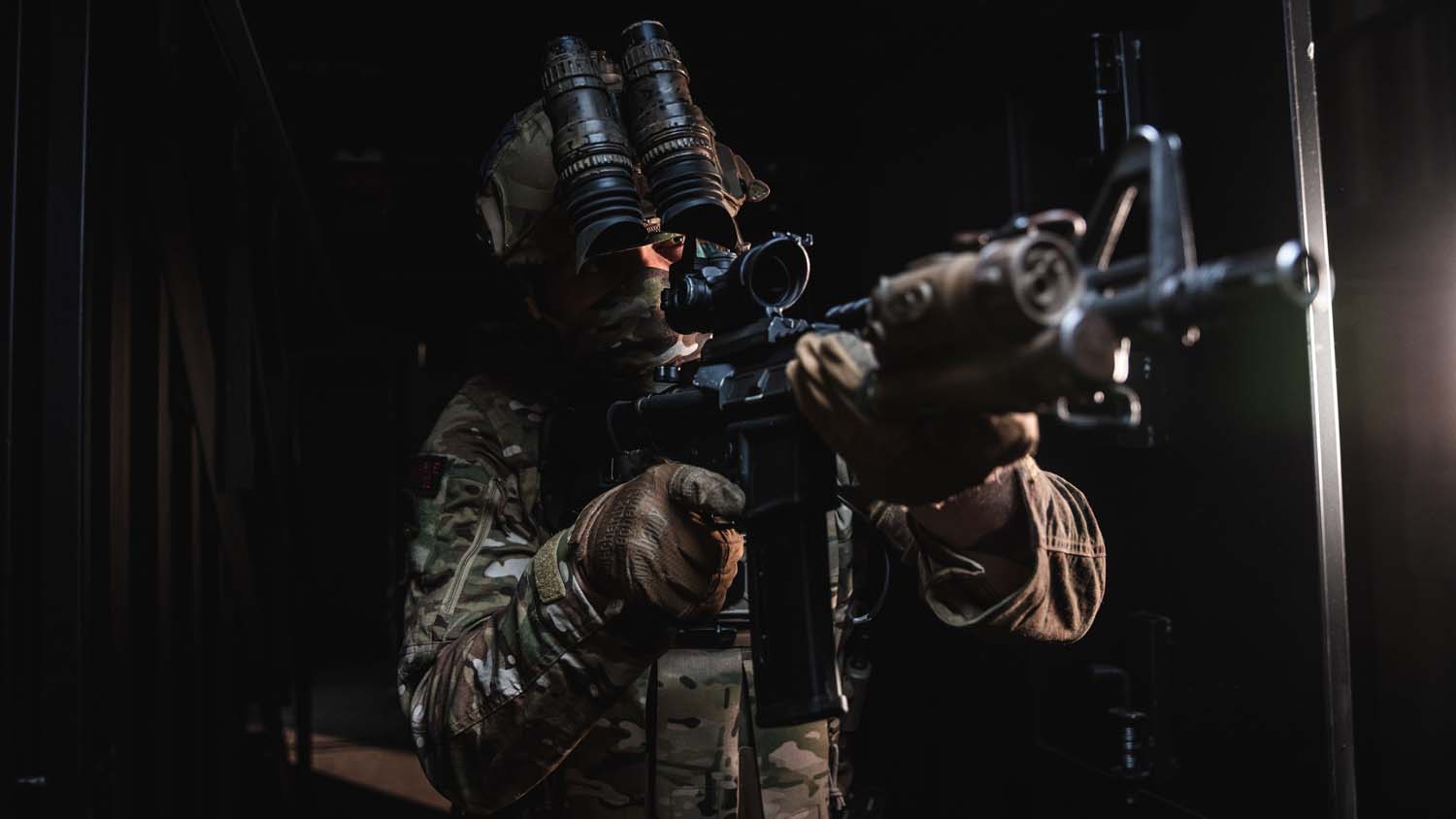Like most new initiatives, the Integrated Operating Concept has introduced fresh terminology to the Defence lexicon. The new capabilities envisaged for a modernised force beyond 2030 have been labelled ‘sunrise’ capabilities – the corollary being ‘sunset’ capabilities that could be used for a while in the emerging operating environment but will increasingly become too vulnerable or redundant in the Information Age. However, in the rush to embrace the latest generation of high-tech weaponry, Defence must be careful not to lose sight of the basics. Maintaining core military skills must always be a priority.
Sunrise Capabilities
The Integrated Operating Concept explains that the modernisation of sunrise capabilities “will require us to embrace combinations of information-centric technologies to achieve the disruptive effect we need”. In his statement to the House of Commons on the Integrated Review last month, Prime Minister Boris Johnson predicted that the forthcoming upgrades in capability would “multiply the fighting power of every warship, aircraft and infantry unit many times over.” He also somewhat fancifully suggested that “our warships and combat vehicles will carry ‘directed energy weapons’ destroying targets with inexhaustible lasers and for them the phrase ‘out of ammunition’ will become redundant”.
The Chief of the Defence Staff, General Sir Nick Carter, was more credible in his explanation of sunrise capabilities during a recent evidence session to the House of Commons Defence Committee. He envisaged:
“They will be smaller and faster, because it [future warfare] will essentially be about the competition for hiding versus finding. There will be much about low-observable and stealth technologies. Electronic warfare and passive deception will be there. We will probably trade reduced physical protection for increased mobility. They will include a mix of manned, unmanned and autonomous platforms. They will be integrated into ever more sophisticated networks. They will have open systems architectures that enable the rapid incorporation of new capability and the rapid integration into the network. We anticipate them being much less dependent on fossil fuels, for obvious reasons, and we think that they will employ many more non-line-of-sight fires. Here, one is of course talking about long-range missile technology.”
A Word of Caution
However, a recently retired 3* officer, and former Deputy Chief of the Defence Staff Military Capability, cautioned against placing too much faith in what he called ‘exquisite irrelevance’ capability. He applied this label to the growing number of increasingly expensive platforms being calibrated against the highest possible requirement, which resulted in prohibitive costs and a correspondingly reduced fleet-size. He suggested that:
“They’re rendered irrelevant for a number of reasons. They’re not in the right space or the right place at the right time because you’ve not got many of these things. They are a very high technological risk therefore they do break sometimes … They may be calibrated against the wrong threat i.e. the opposition is not playing cricket in the way that we thought they were going to play; they’re playing a slightly different game. They’re so expensive and valuable bits of commodities, you don’t put them in harm’s way anyway. As a consequence, you then find they’ve been rendered irrelevant.”
Maintaining Core Military Skills
At a more basic level, the current Commander Field Army, Lieutenant General Ivan Jones has also recognised the dangers of relying too much on technology and confirmed the importance of soldiers maintaining core military skills. As he told The Telegraph, “The big ‘what if’ is, if we lose that satellite, lose that geolocating device, if we lose our communication system, how do we operate?” He went on to say:
“I think we have, as with many, been seduced by the benefits of technology but having been so wonderfully seduced one realises that that reliance does present a vulnerability and if you are overly reliant that can really be exploited.”
An obvious example of this is map reading. As Lieutenant General Jones put it, “how do you start to balance out those traditional skills – map reading – with modern techniques that don’t require you to use a map.”
Here, the issue has been around for some time. In September 2005, this @onUKDefence author was part of the pre-deployment team sent to Afghanistan, prior to the build-up of British forces in Helmand Province, planned for early the following year. The team were loaned a US Army Blackhawk helicopter for an aerial reconnaissance of what was to become Camp Bastion. The pilot flew to a large, featureless piece of desert where his GPS suggested the new base was to be built. However, the pre-deployment team’s chief of staff was convinced they were in the wrong location. He had been following the flight on his own paper map and pointed out the error to the pilot. After a brief exchange of views, the pilot realised that he had entered incorrect coordinates into the GPS, and taken the team to the wrong place! Without the chief of staff’s diligence and sound map reading skills, Camp Bastion may have ended up in a completely difference part of Helmand (as an aside, 15 years on, the chief of staff is now a major general!).
Conclusion
Defence is quite correct in recognising the need for a new conceptual approach to underpin the outputs of the Integrated Review, and, as @onUKDefence has recently confirmed, the Integrated Operating Concept is a strong step in the right direction. However, the armed forces must not get seduced by promises that the latest technology will provide all the answers. A soldier’s job will always be to close with and engage the enemy and, to do that successfully, he – or she – will always need to rely on core military skills.






